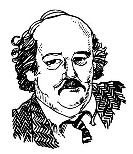(Syndicated to Kansas newspapers Nov. 17, 2014)
 That K-12 Student Performance and Efficiency Commission, that is supposed to suggest to the upcoming Kansas Legislature how to, well, make schools more efficient and produce brighter students, is reaching again.
That K-12 Student Performance and Efficiency Commission, that is supposed to suggest to the upcoming Kansas Legislature how to, well, make schools more efficient and produce brighter students, is reaching again.
That reach? Most simply, into whatever the commission’s most conservative members can find in the way of making sure that not one dime of taxpayer money goes into the operation of the state’s largest schoolteacher union, the Kansas National Education Association.
Last year, the Legislature sank school districts’ option to negotiate to allow schoolteachers to have part of their salary automatically deducted from their paychecks for contributions to the KNEA political action committee.
Just a way to make it more inconvenient for the union members to contribute to the political action committee.
And, this year, well, it won’t be part of that K-12 commission’s report to the Legislature, but at a recent meeting the group’s more conservative members were shocked—yes, shocked, or at least canny enough to look shocked—that some school districts pay KNEA officers either their full salary or some portion of their salary to attend to union business.
Again, that’s something that school boards and the union work out during contract negotiations with the attendant give-and-take but it briefly became a hot point for discussion.
Which means that when the Kansas Legislature goes into session next year it will have the “official” report of that study commission, which recommends a lot of basically businesslike management proposals. A handful of legislators will get some under-the radar suggestions to nickel-and-dime the teacher union, which would have to find a way to make sure that its leaders who get a paid leave from their school districts can still afford to serve.
Not a big deal, not a lot of money, but one of those little political issues that will spark battles in the Statehouse next year.
If the KNEA deal seems too specifically targeted, a survey of school districts turned up some other broader issues that can be combined into legislation—like whether teachers or any school district employees should be paid for unused sick leave when they retire.
That’s how these commissions work. There was a specific charge—just look at the name of the panel—and then there is the wandering-about that gets political.
Now, is anyone betting that there will be a lawmaker—or a majority of a quorum of some committee, or maybe even the entire Legislature—who will like the idea of prohibiting that little salary for union work deal? Insiders are betting that the House and the Senate, which as we recall all stand for reelection in just two years, may like that idea. If you are a conservative Republican you can make a whole brochure out of not a dime of state income taxpayers’ or local property taxpayers’ money going to keep up the car payments of a teacher union official.
Those little side issues that pop up either by surprise or by design are what make watching the Legislature interesting indoor work, and those issues also can become levers for action on broader, more far-ranging and probably more important bills for lawmakers to consider.
Say, you are a legislator and don’t really like a bill. It can be made more palatable if it carries a little amendment that you do like…maybe enough for you to hold your nose and vote “yes.” Or, say there’s a bill that you do like, but that one amendment spoils it for you because you know your next election opponent is going to dwell on it.
Wonder how that works? You could talk to Rep. Paul Davis, D-Lawrence, who in his run for governor was reminded often by Republican Gov. Sam Brownback about voting against the last school finance bill (which incidentally cut some property taxes levied by school districts) because of a little provision that eliminated due process hearings for schoolteachers.
We’ll see what pops up.
